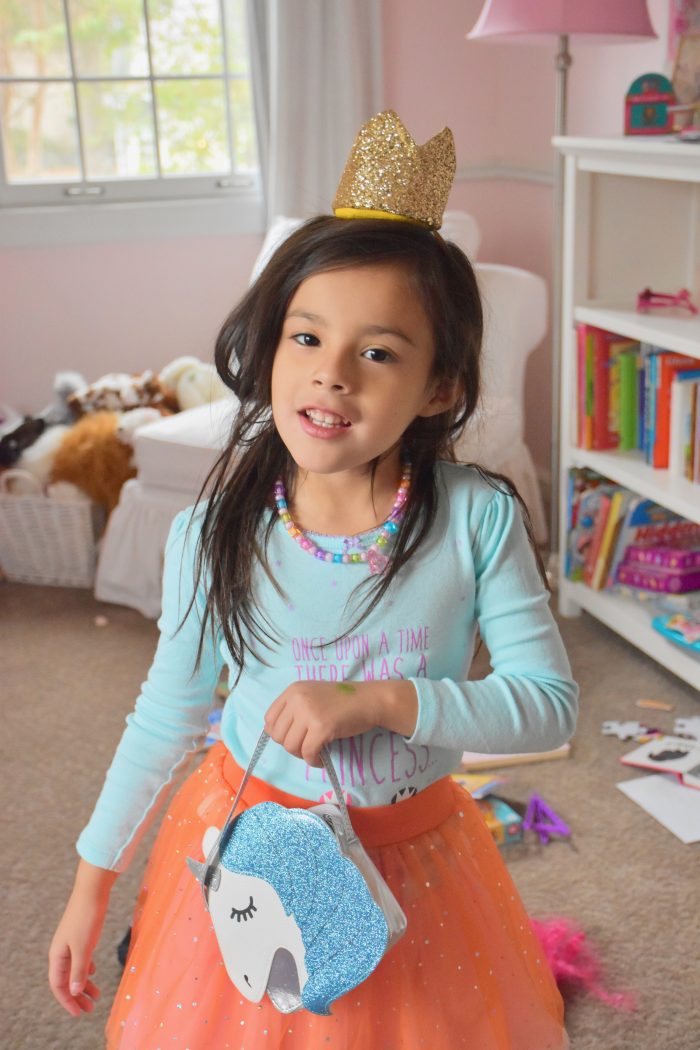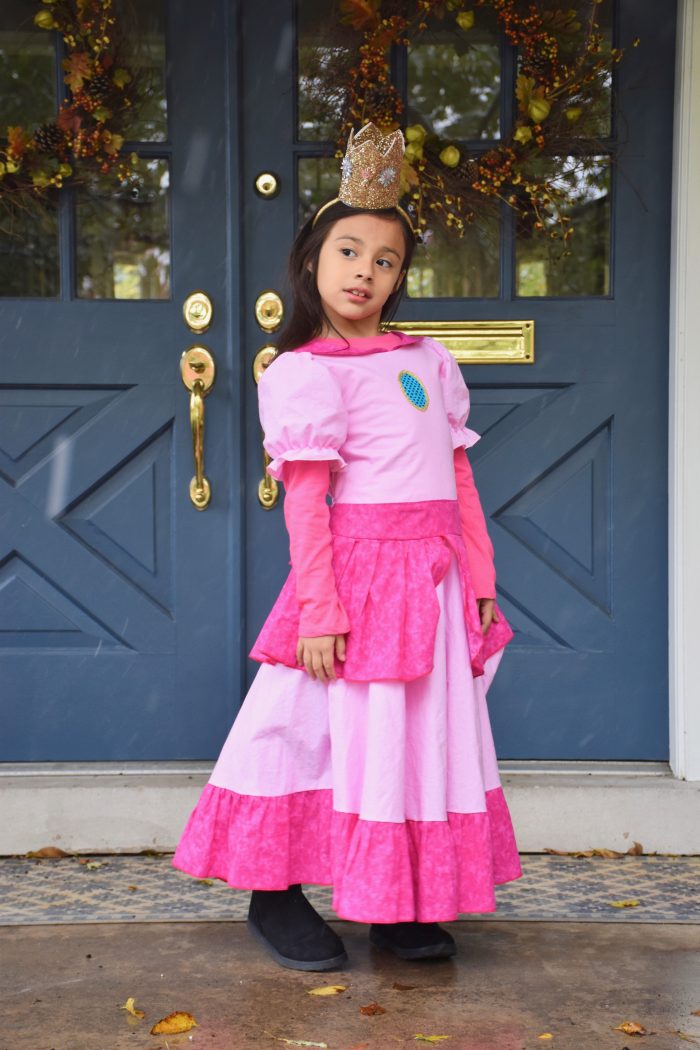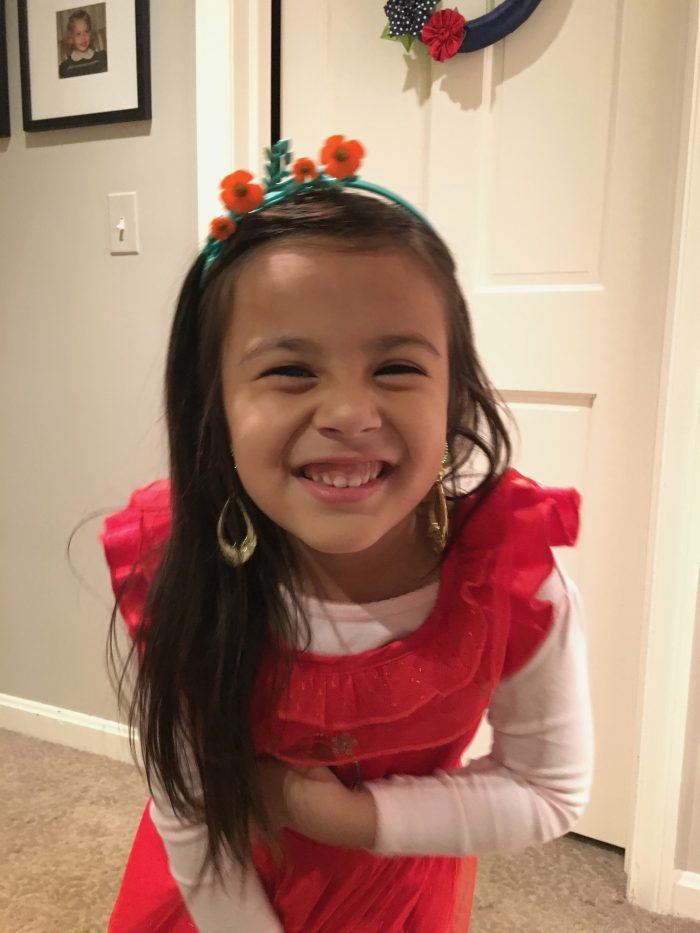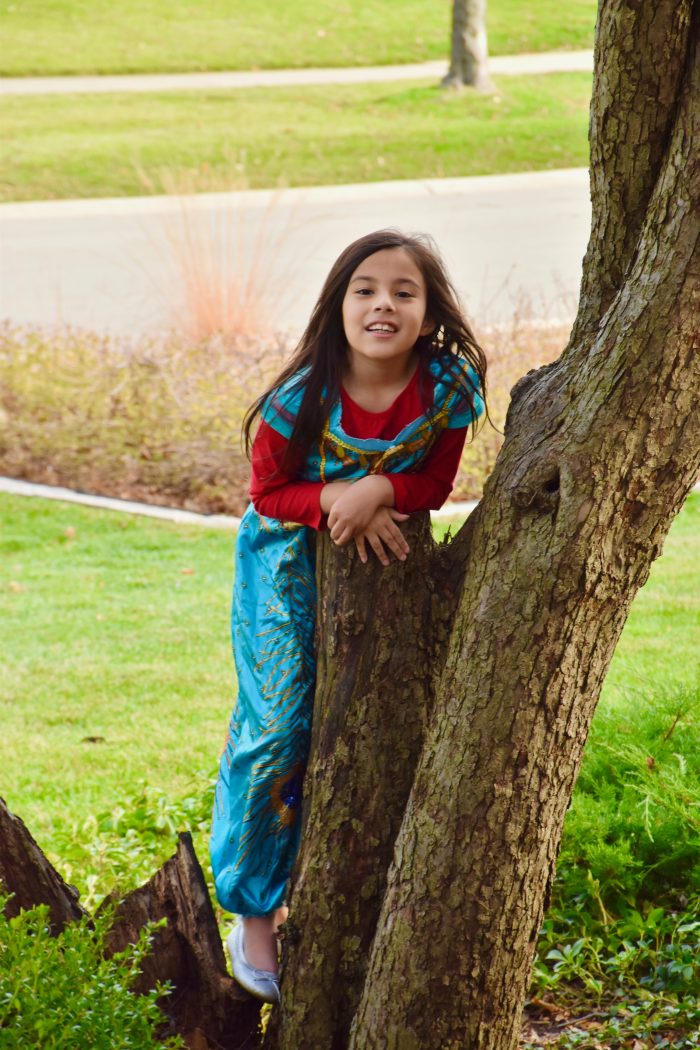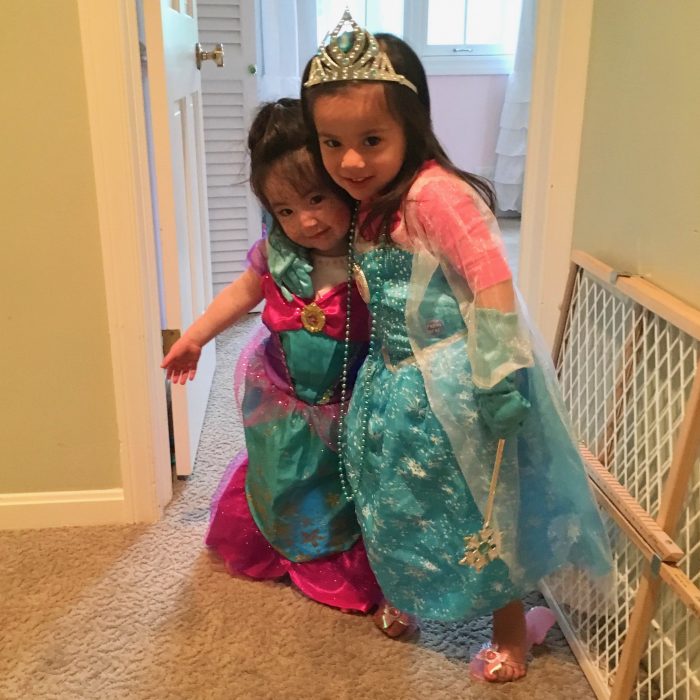There is a great sense of anticipation in my house as Halloween approaches. My daughters are currently counting down the days. Our family loves to dress up and celebrate. However, no one loves Halloween more than my eight-year-old daughter, Gabby. As far as she is concerned every day should be filled with costumes and magical thinking. This year she is going to be Princess Zelda and her sister Alyssa is going to be Dorothy from the Wizard of Oz. Princess Zelda proved to be a bit more of a costume ordering challenge but my daughter helped me get all the details just right. Because she is an expert on princesses.
For as long as I can remember my daughter, Gabby has loved princesses and fairytales. She has always been one for costumes, crowns and stories. She once took a flying leap off the living room curtains while playing Rapunzel. Alas her curtain hair could not support her plans to swing her way out of her pretend tower as the rod came crashing down. She was fine but the curtain rod was toast. Then in kindergarten she began designing her own costumes. She would spend all of her free choice time in school coloring and cutting out costumes complete with crowns and earrings she taped to her ears. Every day was a royal adventure.
However, there was a time when I began to worry that her zealous love of princesses might have become too much. One day in preschool she brought home a “what I want to be when I grow up” project. As we began to work on it, I was curious to see what she would choose. Her answer without a moment’s hesitation was “I want to be a princess.”
This preschool project suddenly had me to questioning myself as mother. What had I been teaching her? Is being a princess really a job you can choose? Concerned, I tried to talk my four-year-old out of it, but what should I say? Being a princess is an inherited burden. Historically speaking royal life doesn’t always end so happily ever after. However, what I failed to realize is that her definition of princess was different than mine.
After all modern-day storybook princesses are no longer limited to the role of the damsel in distress. They are crime fighting superheroes like the Princess in Black. They can bravely fight to save their own kingdom like Disney’s Moana, Mulan and Elsa. Princesses can now courageously write their own story like Amazon Prime’s new version of Cinderella. In this modern tale Ella unexpectedly turns down the crown in order pursue her dreams of being a fashion designer and small business owner. So, is wanting to be a princess really as bad as I had feared?
Sarah Coyne, a developmental phycologist at BYU recently made headlines from the Wall Street Journal to Time magazine for her research on the new “princess culture.” Her studies surprisingly found that children who had higher engagement in the “princess culture” in the preschool years actually had more progressive attitudes about women and a healthier sense of body image as they grew older. Perhaps my daughter had it right all along.
Fairytales are powerful stories that often inspire courage in the face of adversity. This is why I have come to appreciate her love of princesses. In her own way my daughter has used these stories to make herself stronger when facing of her own challenges in school.
When Gabby was in first grade, she needed eye therapy to correct her vision. Vision therapy was difficult and there were days when she just wanted to give up. One day after a particularly tough session, the therapist was giving Gabby a pep talk when my daughter stopped her. She said “I bet you would feel much better about this if you could wear a princess outfit.” The therapist had to laugh and agree.
We may only be little once, but the lessons we learn and stories we tell stay with us. I now realize that I was wrong to question her royal ambition. Because as my daughters grow, I want them to become brave and confident women who know how to tame the dragons of this world and become anything they want to be.

